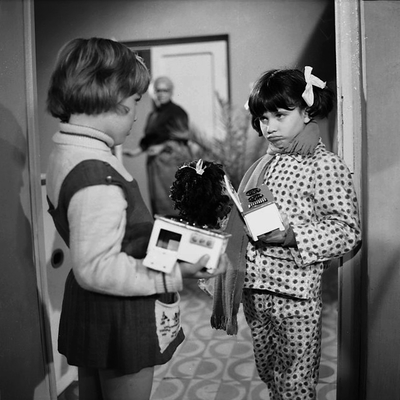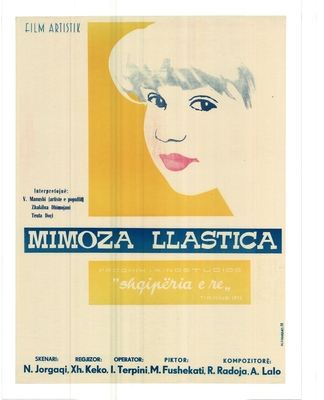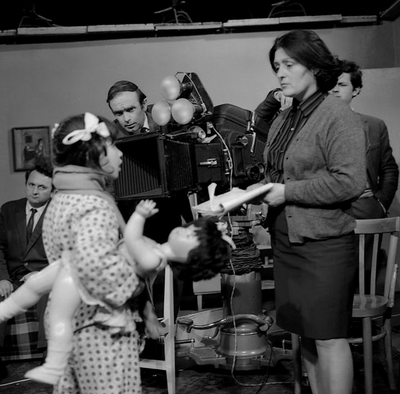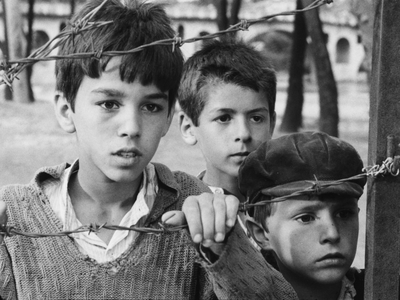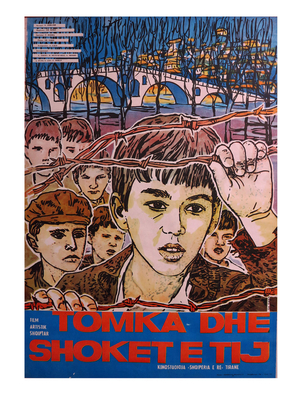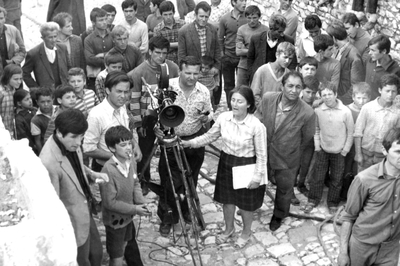ZLÍN FILM FESTIVAL DISCOVERS UNIQUE TREASURE
ZFF is proud to present the work of Albanian children´s filmmaker Xhanfise Keko. With the help of Albanian National Film Archive two of her masterpieces will be part of the Balkan focus within Discover & Explore – Spoiled Mimoza (1973) and Tomka and His Friends (1977).
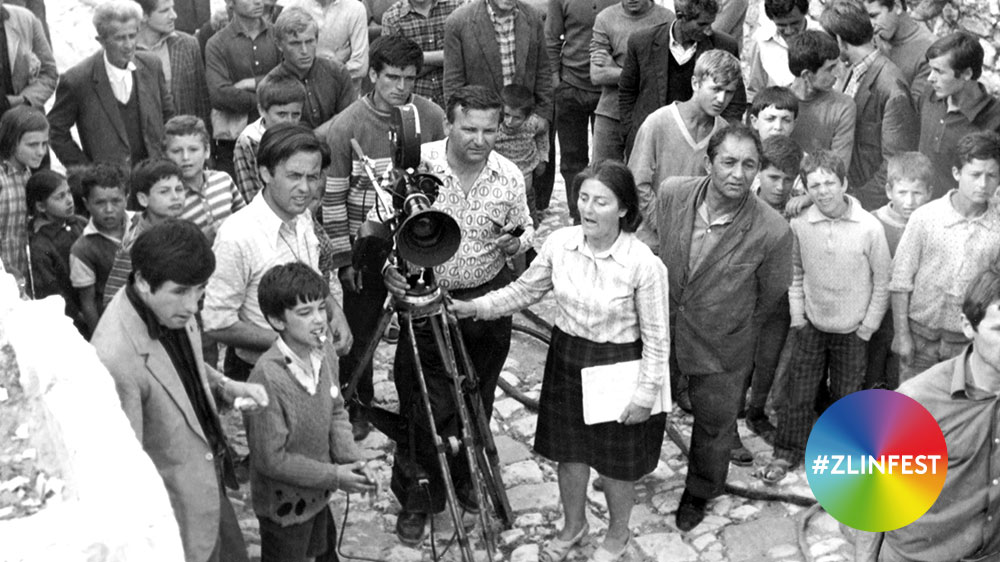
All of us are still familiar with the children’s film classics produced in Scandinavia in the late sixties, early seventies, when a series of Astrid Lindgren adaptations set out the course for a whole generation of film enthusiasts and filmmakers. Simultaneously, on the other end of the continent, in communist Eastern and Central Europe, a similar movement gathered momentum. East German, Czechoslovakian and Yugoslavian directors started making children’s films in an outspoken political context, subtly working within the ruling system that at the same time they were questioning. Both traditions have stood the test of time, but are remembered and embraced by European audiences very differently.
Within the communist bloc, Enver Hoxha's Albania was an isolated entity, self-sustaining and introspective. But even there, behind the country’s guarded frontiers, filmmakers were working on an oeuvre that was impactful for an entire generation. In this ‘parallel universe’ one artist made a series of young audience films that were as poetic and refreshing as they were subversive.
Now that Albanian filmmaker Thomas Logoreci, together with British film critic Marc Cousins is working on a “young person’s guide to Albanian cinema”, they found it the right time to present Xhanfise Keko’s brilliant oeuvre to the world, like they do in their essay documentary HERE BE DRAGONS. Also the Zlin Festival wants to contribute to this and programmed two of Keko’s films in the festival’s new ‘Discover & Explore’ section. If you are in the habit of generally ignoring ‘archive sections’ at festivals, we recommend you to act differently this time, and to use this unique occasion to see SPOILED MIMOSA and TOMKA AND HIS FRIENDS. Iris Elezi, director of the Albanian National Film Archive in Tirana: “SPOILED MIMOSA (1973) and TOMKA AND HIS FRIENDS (1977) in their remastered version will introduce you to the work of an artist who was able to smuggle in stylistic devices and themes sometimes at odds with the dictatorship's propaganda machine. THE NEWEST CITY IN THE WORLD (1974), another of Keko’s masterpieces, has yet to go through the scanning process, so that also this film can be made available soon.”
While under the communist regime films were supposed to bring a glorious tribute to reality, Keko dares to break away from realism, into a field of dreams, tenderness and fantasy, in the disguise of genuine communist iconography. As a great observer she captured the everyday lives of children, who’s moral seriousness Marc Cousins compares with the kids in De Sica’s BICYCLE THIEVES. Keko made 29 films in total. She died in 2007. Now in Tirana, a street is named after the country’s first female director, where kids play on the sidewalk, as so beautifully depicted in Cousins’ HERE BE DRAGONS.
Here you’ll find an excerpt of the upcoming “young person’s guide to Albanian cinema”, written by Thomas Logoreci.
* * * * *
In late 1972, an annual song festival was performed at the Soviet designed Palace of Culture in the centre of the Albanian capital, Tirana. Believing change might soon be coming to Marxist Albania, many of the musicians performed Western jazz and rock & roll. During the televised concert, women dressed in short skirts sang popular songs, like the ones you could hear on American or British radio. It seemed that many of the musicians had been listening to Italian and Yugoslavian radio stations, which was considered a criminal act under the communist regime.
A documentary film about the concert shows many people in the audience looking tense and nervous. After living under the harsh dictatorship of Enver Hoxha for nearly 30 years, Albanians had no idea what the future had in store. Shortly after, the Albanian leadership denounced some of those performers as ‘enemies of the people’. In early 1973, communist authorities used the event as a pretext to end a brief period of cultural change in Albania. Several people who took part in the concert were imprisoned or sent into internal exile.
The middle of the 1970’s wasn’t an easy time to be an artist or filmmaker in Albania. But one director was able to use the children’s film genre to express her personal ideas about the pain and joy of being young. Though much of the country’s film industry was (and still is) dominated by men, Xhanfise Keko (1928-2007) is now considered by many international critics to be one of the top directors in the world, and perhaps Albania’s most well-known director.
Already at a very young age, Xhanfise was so eager and enthusiastic about the movies that she decided to become a filmmaker. In the early 1950’s, she left Albania for the Soviet Union, where she studied the craft of filmmaking. For the next 20 years, Keko worked in the New Albania Film Studio, sitting every day behind a huge editing machine, cutting images shot by news cameramen from all over Albania. She even married one of the leading documentary cameramen, Endri Keko.
In the early 1970’s, she decided to stop editing other people’s films and to start making her own. Fascinated by the innocent world of children, she set out to capture the lives of young people on camera. In 1973, when the era of cultural freedom was at its end, Xhanfise directed MIMOZA LLASTICA (SPOILED MIMOSA). The little girl Mimoza is one of the most memorable characters in Albanian cinema. As with all her films, Xhanfise spent many hours with her young actors, talking and listening. This unique method allowed her to gain their trust, thus being able to direct them into authentic performances once the camera began to roll.
Zhaklina Dhimojani was only seven years old when she starred in the title role, playing a sour child that doesn’t want to share her toys with her friends in the apartment block. When she refuses to change her attitude, Mimoza is left to play all by herself. In one of the most touching scenes, Mimoza feels so lonely that she starts talking to her dolls. Only in the finale, she realizes her mistake and makes up with the other kids. Mimoza is spoiled no longer.
The communist regime approved with the film’s ending. Albanian leaders found it utterly important that their citizens belonged to a collective, not acting like individuals. Even though the film’s message was embedded in the philosophy of the dictatorship, SPOILED MIMOSA still holds a special place in the hearts of Albanian audiences. Everyone who saw the film in the theatres, remembers the child actors’ authentic performances.
For the next ten years, Xhanfise Keko continued to make films with young people. As
authorities believed these films were only meant for children, they often didn’t notice how Keko used camera and editing techniques that male Albanian directors couldn’t master. Though critics today often point out the communist messages in films like TOMKA AND HIS FRIENDS (1977), Keko’s work features some of the most iconic moments in Albanian cinema.
In 1979, her husband Endri Keko, got badly injured in a car accident. Until his death in 1989, Xhanfise’s priorities shifted towards taking care of her partner. During these years, Keko made two of her most serious movies, WHEN SHOOTING A FILM (1981) and TAULANT WANTS A SISTER (1984). Some consider WHEN SHOOTING A FILM her best work, in which she portrays a shy boy whose parents are about to get a divorce, once again brilliantly using the real life stories of her young actors.
After SPOILED MIMOSA, Xhanfise Keko made nine more fiction films with children. Unfortunately after the decline of the government-funded Kinostudio system, she never made another film again. This is one of the tragedies of Albanian cinema. If only she could have continued filming during the dramatic 1990’s, an era of great chaos in Albania, many young people might have found in her a friend and spokesperson who could reflect their problems onto the big screen.
Xhanfise Keko spent her later years writing her memoirs, in a book entitled THE DAYS OF MY LIFE, in which she spurs a next generation of directors to make films for children. “We had one common goal in life: to raise a new generation, beautiful, educated and wise, to serve Albania’s tomorrow. There are plenty of talented boys and girls who can and should be encouraged and stimulated to get engaged in children’s films. Cinema and children remain two of my greatest passions.”
Filmmaker Thomas Logoreci co-wrote the feature length essay documentary about Albania, HERE BE DRAGONS, with acclaimed Irish filmmaker Mark Cousins. He was co-writer and co-director of the fiction feature BOTA, Albania’s selection for the 2016 US Academy Awards and is currently writing a Young Person’s Guide to Albanian Cinema.
